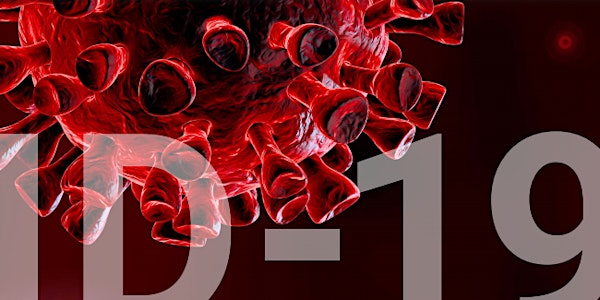
The representation of older people during the Covid crisis
This seminar series will showcase on-going COVID-19 related research at University College Dublin
Date and time
Location
Online
About this event
The representation of older people during the Covid-19 crisis
Seminar Summary
Join the UCD Research Partners team for our regular 30min chat with researchers currently pursuing research relating to COVID-19 from across the 6 Colleges of UCD. In this session we will talk with Prof Anne Fuchs (Director Of UCD Humanities Institute) about impact of the pandemic on Irish society, emerging stories of sickness, death, lockdown, isolation, unemployment, alongside stories of human resilience, solidarity and hope for enhanced sustainability, social inclusion and fairness.
In particular, from an early point, the discourse on older people was controversial and troubling. While the intent was to a certain extent related to special measures to protect them from infection, this well-intended policy resulted in severely restricted freedom and mobility over an extended period of time, causing mental and other health issues. For example, in Ireland people over 70 were effectively sectioned off from the rest of society, regardless of their vastly differing needs, abilities, fitness levels and their overall health. The massive contribution of this cohort to society as a whole was eclipsed in favour of a discourse that focused on the idea of their collective vulnerability. One striking feature of the discourse was its non-dialogic nature: the discursive homogenization and ‘frailing’ of the over 70s meant that people in this category were object of public discourse rather than participants in the debate.
Against this backdrop the recent UCD Humanities Institute webinar on C19: Reframing Ageing attempted to rise above sector debates by asking: what are the blind spots and biases that Covid-19 has revealed in public discourse, political rhetoric and narratives of experience?
Her talk will summarise the main arguments and findings of a discussion that involved older people, gerontologists, sociologists, historians, artists and literary critics.
Prof Anne Fuchs
Anne Fuchs studied German and English Literature at the University of Konstanz, Trinity College Dublin and the Freie Universität Berlin. Her PhD examined the role of humour in the works of the Swiss writer Robert Walser. Between 1992-2010 she was Lecturer, Senior Lecturer and then Professor of Modern German Literature and Culture at University College Dublin where she co-founded the UCD Humanities Institute in 2002, funded by the Programme for Research in Third Level Institutions in Ireland (PRTLI 3). From 2002 ' 2007 she was Principal Investigator of the five-year Research Programme 'German Memory Contests since 1945', funded by PRTLI3.
In 2005/6 she received an IRCHSS Senior Research Fellowship, which enabled her to carry out research for her monograph Phantoms of War in Contemporary German Literature, Films and Discourse (Palgrave Macmillan). It won the CHOICE "Outstanding Title Award" in the United States in 2009. The award of a UCD Senior Fellowship in 2010 helped her to complete her monograph After the Dresden Bombing: Pathways of Memory, 1945 to the Present (Palgrave Macmillan 2012). In 2011 she accepted the Chair and Professorship of German at the University of St Andrews before moving to the University of Warwick in January 2012 where she was Professor of German Studies and Director of Research in the School of Modern Languages and Cultures until September 2016. She was a Fellow of the Max Planck research group Memory and History, University of Constance and guest researcher at the Kulturwissenschaftliche Kolleg, Universität Konstanz in 2014. She returned to UCD in October 2016 to assume the Directorship of the UCD Humanities Institute. She is a Member of the Royal Irish Academy and in 2014 she was elected a Fellow of the British Academy.
UCD COVID-19 Seminar Series
In order to help tackle this pandemic, we must leverage multidisciplinary research and innovation expertise from across our academic institutions. This highly relevant expertise spans a wide range of disciplines both scientific and non-scientific. Indeed, it is important to note that while the fundamental challenges is a health-related emergency, this pandemic will have significant implications for our society, our economy and future policy.
Across UCD and in our university hospitals, researchers are rising to the challenge of the COVID-19 pandemic. They are providing critical supports that have a real and tangible impact on patients’ lives. They are expanding Ireland’s testing capacity, developing new supply chains, manufacturing reagents, developing national contact tracing capability, and investigating new ways to tackle the disease.
Our researchers are working to better understand the impact on the health of our children during this pandemic, the impact on individuals with intellectual and disabilities and their caregivers, they are new methods for screening antiviral compounds, coordinating primary care networks, manufacturing PPE, producing critical reagents for testing, modelling populations behaviours, developing new medical devices to mitigate the risk of disease spread, investigating the host response to the disease, developing innovative remote monitoring technologies, and developing novel national disease surveillance methods.
This seminar series will showcase on-going COVID-19 related research at UCD to help facilitate greater interdisciplinary collaboration within UCD and with external partners.
We are using Basecamp to continue the conversation and facilitate collaboration online at UCD. Please select "Yes, please add me to UCD C19 Research Basecamp Portal" when prompted during the Eventbrite event registration process. Alternatively, please complete the webform linked here to join the UCD C19 Research Basecamp Portal.
Organised by
The Research Partners team advise and support academic leaders in the development of medium to long-term plans across UCD’s major research themes. Specifically, the team works on developing strategic elements of major funding proposals and they complement the work of the Research Programmes team.